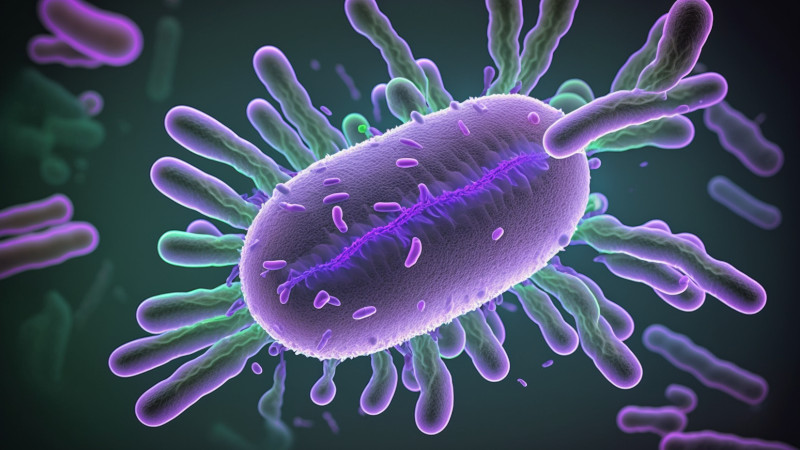Which side are you on in the Fennel seed vs Ginger debate? These are two natural ingredients that have been used for centuries to improve gut health, and cleanse the body of parasites. While both ingredients have their unique benefits, they can be used together to create a powerful natural remedy. So there really isn’t any need to sacrifice one for the other.
Fennel seed is a popular ingredient in many traditional medicines due to its ability to improve digestion and reduce inflammation in the gut.
It contains compounds that have anti-parasitic properties and can help to eliminate harmful bacteria and fungi from the body. We’ll dig deeper into that a little later.
Ginger, on the other hand, is a root that is widely used in traditional medicine to treat various ailments, including digestive issues and inflammation.
It contains compounds that have anti-inflammatory and antioxidant properties, which can help to reduce inflammation in the gut and improve overall gut health.
Come with us as we take a closer look at how Fennel seed vs Ginger stack up.
Table of Contents
Fennel Seed vs Ginger; What are the Benefits?
Traditional healers have been working with these two herbs for a lot longer than Western medicine has been around. Both of these herbs have unique properties that make them effective for a range of digestive issues.
Gut Health Benefits of Fennel Seeds
Fennel seeds are the dried seeds of the fennel plant, which is native to the Mediterranean region. They have a sweet, licorice-like flavor and are commonly used in cooking. They have long been regarded as a natural remedy for digestive issues. Some of the gut health benefits of fennel seeds include:
- Relieving bloating and gas
- Fennel seeds contain compounds that relax the muscles in the digestive tract, which can help relieve bloating and gas 1
- Relieving constipation
- Fennel seeds have a mild laxative effect that can help relieve constipation and promote regular bowel movements 2
- Reducing inflammation
- Fennel seeds contain antioxidants and anti-inflammatory compounds that can help reduce inflammation in the gut and promote healing, and 3
- Combat parasites
Gut Health Benefits of Ginger
Ginger is a root that is native to Asia and has been used for thousands of years for its medicinal properties. It has a spicy, slightly sweet flavor and is commonly used in cooking and as a natural remedy for digestive issues. Some of the gut health benefits of ginger include:
- Relieving nausea
- Ginger is effective in relieving nausea and vomiting, especially in people undergoing chemotherapy or surgery 6
- Reducing inflammation
- Ginger contains compounds that have anti-inflammatory properties, which can help reduce inflammation in the gut and promote healing 7
- Combating parasites
- Ginger has antimicrobial properties that make it effective for combating parasites and other harmful microorganisms including Streptococcus mutans, Enterococcus faecalis, Staphylococcus spp., and Lactobacillus spp., and 8
- Relieving bloating and gas
- Ginger can help relieve bloating and gas by relaxing the muscles in the digestive tract. 9
As you can see, the Fennel seed vs Ginger discussion already provides a basis to consider these two as allies rather than enemies.
How to Use Fennel Seeds for Gut Health and Parasite Cleanse
Parasite Cleanse Benefits of Fennel Seeds
Fennel seeds are rich in antioxidants and have antibacterial, antifungal, and antiparasitic properties. These primarily phenolic compound properties make fennel seeds an effective natural remedy for treating parasites in the gut. 10 11
Fennel seeds can help to flush out harmful toxins and parasites from the body, helping to restore digestive health and improve overall well-being.
Parasites in the gut can cause a range of health problems, including bloating, gas, diarrhea, constipation, and abdominal pain. 12
Fennel seeds can help to relieve these symptoms by reducing inflammation and promoting healthy digestion.

Ways to Use Fennel Seeds for Gut Health
There are several ways to use fennel seeds for gut health and parasite cleanse:
- Chew on fennel seeds after a meal to aid digestion, and freshen breath as a bonus
- Add fennel seeds to hot water and steep for 5 to 10 minutes to make a soothing tea
- Sprinkle fennel seeds on salads, soups, or roasted vegetables for added flavour and health benefits, and
- Use fennel seeds in cooking to add a unique flavour to dishes
Precautions When Using Fennel Seeds
While fennel seeds are generally safe for consumption, it is important to use them in moderation.
Consuming large amounts of fennel seeds can lead to side effects such as nausea, vomiting, and diarrhea. Pregnant women should also avoid consuming fennel seeds as they can stimulate uterine contractions.

It is always worth keeping these precautions in mind when considering the Fennel seed vs Ginger discussion.
How to Use Ginger for Gut Health and Parasite Cleanse
Parasite Cleanse Benefits of Ginger
Ginger is known for its anti-inflammatory and antioxidant properties, but it also has natural antiparasitic effects that can help cleanse your gut from harmful parasites. Gingerols and shogaols, the active compounds in ginger, can help kill parasites by disrupting their cellular membrane and inhibiting their growth. 13
In addition, ginger can stimulate digestion and improve gut motility, which can help flush out parasites and their eggs from your system. 14
It can also help reduce inflammation and soothe gut irritation caused by parasitic infections.
How to Prepare Ginger for Gut Health and Parasite Cleanse
Here are some simple ways to incorporate ginger into your diet for gut health and a parasite cleanse:
- Add fresh ginger to your meals
- Grate or chop fresh ginger and add it to your stir-fries, soups, stews, and marinades. You can also use it to make ginger tea or smoothies
- Drink ginger tea
- Steep fresh ginger in hot water for 10 to 15 minutes and drink it as tea. You can also add lemon and honey to enhance the flavour and health benefits, and
- Take ginger supplements
- If you don’t like the taste of ginger or find it difficult to consume enough of it, you can take ginger supplements in the form of capsules, powders, or extracts. Make sure to follow the recommended dosage and consult with your healthcare provider before taking any new supplements.
Note: Some specialists who are well-versed in dealing with parasitic issues will advise removing sugars from your diet will help with the elimination process. This would include honey. Sugars are considered to be a food source for many microbes, and cutting these out for a duration is normally a key part of the strategy. 15
Precautions and Side Effects
While ginger is generally safe for most people, it may cause some side effects in high doses or for certain individuals. These may include:
- Heartburn
- Stomach upset
- Diarrhea
- Bloating, and
- Interactions with medications, such as blood thinners, diabetes drugs, and high blood pressure medications.
If you experience any adverse effects from ginger or have any pre-existing medical conditions, it’s best to talk to your doctor before using it for gut health or parasite cleanse.
See also the comparisons between:
Nutritional Values of Fennel Seed vs Ginger
Both of these herbs have specific nutritional values. The comparison between Fennel seed vs Ginger is easiest completed as a side-by-side evaluation. Let’s consider how they compare. 16 17
| Nutritional Value per 100g | Ginger | Fennel Seeds |
| Phosphorous | 34 mg | 487 mg |
| Vitamin C | 5 mg | 21 mg |
| Fibre | 2 g | 39.8g |
| Copper | 0.23 mg | 1.067 mg |
| Zinc | 0.34 mg | 3.7 mg |
| Magnesium | 43 mg | 385 mg |
| Potassium | 415 mg | 1694 mg |
| Vitamin B3 | 0.75 mg | 6.05 mg |
| Manganese | 0.23 mg | 6.53 mg |
| Polyunsaturated Fat | 0.15 g | 1.69 g |
| RDI per 100g | Ginger | Fennel Seeds |
| Sodium | 0.65% | 4% |
| Zinc | 3.33% | 33.67% |
| Copper | 25.33% | 118.67% |
| Calcium | 1.6% | 119.67% |
| Iron | 7.33% | 232% |
| Magnesium | 10.33% | 91.67% |
| Phosphorous | 5% | 69.67% |
| Potassium | 12.33% | 50% |
| Selenium | 1.3% | 0% |
| Manganese | 10% | 284.33% |
| Vitamin B12 | 0% | 0% |
| Vitamin B6 | 12.33% | 36.33% |
| Vitamin B5 | 4.3% | 0% |
| Vitamin B3 | 5% | 38% |
| Vitamin B2 | 2.6% | 27.33% |
| Vitamin B1 | 2.3% | 34% |
| Vitamin C | 5.6% | 23.33% |
| Vitamin D | 0% | 0% |
| Vitamin E | 2% | 0% |
| Vitamin A | 0% | 3% |
| Vitamin K | 0.3% | 0% |
| Folate | 3% | 0% |
| Macronutrient Content | Ginger | Fennel Seeds |
| Protein | 1.82g | 2% | 15.8g | 16% |
| Fats | 0.75g | ~1% | 14.87g | 15% |
| Carbohydrates | 17.77g | 18% | 52.29g | 52% |
| Water | 78.89g | 79% | 8.81g | 9% |
| Other | 0.77g | ~1% | 8.23g | 8% |
| Fat Content | Ginger | Fennel Seeds |
| Saturated Fats | 0.203 g | 0.48 g |
| Monounsaturated Fats | 0.154 g | 9.91 g |
| Polyunsaturated Fats | 0.154 g | 1.69 g |
FAQs
Fennel Seed vs Ginger: Which is better for gut health and parasite cleanse?
Both fennel seed and ginger have been used for centuries to promote gut health and aid in parasite cleansing. However, each has its unique properties that make them effective in different ways.
Fennel seed is known for its ability to soothe digestive issues such as bloating, gas, and constipation. It has also been shown to have anti-inflammatory and antimicrobial properties that can help combat harmful bacteria and parasites in the gut.
Ginger, on the other hand, is a potent anti-inflammatory agent that can help reduce inflammation in the gut caused by parasites and other harmful organisms. It also has antifungal and antibacterial properties that can help eliminate harmful microorganisms in the gut.
How do I use Fennel seed and Ginger for Gut Health and Parasite Cleanse?
Interestingly, the Fennel seed vs Ginger discussion is more about how they echo each other’s potential, rather than choosing one over the other. Both fennel seed and ginger can be consumed in various forms, including teas, capsules, and fresh or dried herbs. Here are some ways to use them:
• Drink fennel seed tea after meals to promote digestion and reduce bloating and gas
• Add fresh ginger to your meals or drink ginger tea to reduce inflammation and promote gut health, or
• Combine fennel seed and ginger in a tea or supplement form to enhance their benefits for gut health and parasite cleanse.
Are there any Side Effects to using Fennel seed and Ginger for Gut Health and Parasite Cleanse?
While fennel seed and ginger are generally safe to use, some people may experience side effects such as:
• Allergic reactions
• Heartburn or acid reflux, or
• Diarrhea or stomach upset.
If you experience any of these side effects, stop using fennel seed or ginger and consult your healthcare provider.
Conclusion
Both fennel seed and ginger have unique properties that make them effective for promoting gut health and aiding in parasite cleansing.
Regardless of which part of the Fennel seed vs Ginger discussion you may find worth considering trying if you are taking any medications or have any underlying health conditions, it is important to speak with your healthcare provider before using Fennel seeds or Ginger for gut health or parasite cleanse.
What are your experiences with Fennel seed vs Ginger? Join the conversation on Instagram and Pinterest!
References
- “Effects of dietary fennel (Foeniculum vulgare Mill.) seed powder supplementation on growth performance, nutrient digestibility, small intestinal morphology, and carcass traits of broilers” – H. Liu, J. Li, S. Lin, T. Liu, C. Zheng, 28 January 2021 [PubMed] [Archive] ↩︎
- “Randomized clinical trial of a phytotherapic compound containing Pimpinella anisum, Foeniculum vulgare, Sambucus nigra, and Cassia augustifolia for chronic constipation” – P. D. Picon, R. V. Picon, A. F. Costa, G. B. Sander, K. M. Amaral, A. L. Aboy, A. T. Henriques, 30 April 2010 [PubMed] [Archive] ↩︎
- “The effect of a fennel seed extract on the STAT signaling and intestinal barrier function” – B. Das, J. Rabalais, P. Kozan, T. Lu, N. Durali, K. Okamoto, M. D. McGeough, B. J. Lee, K. E. Barrett, R. Marchelletta, M. Sivagnanam, Date [PubMed] [Archive] ↩︎
- “Effect of Foeniculum Vulgare Aqueous and Alcoholic Seed Extract against Zoonotic Cutaneous Leishmaniasis” – G. Mostafa, N. Jalallou, S. J. Seyyedtabaei, A. Dadashi, S. E. S. Sabour, 31 March 2021 [PubMed] [Archive] ↩︎
- “Parasites: Leishmaniasis – Biology” – CDC Staff, 18 February 2024 [CDC] [Archive] ↩︎
- “The Effectiveness of Ginger in the Prevention of Nausea and Vomiting during Pregnancy and Chemotherapy” – I. Lete, J. Allué, 31 March 2016 [PubMed] [Archive] ↩︎
- “Zingiber officinale (Ginger) as a treatment for inflammatory bowel disease: A review of current literature” – F. S. P. Ranjbar, F. M. Mohammadyari, A. Omidvar, F. Nikzad, N. D. Nargesi, M. Varmazyar, S. Dehghankar, F. Vosoughian, S. Olangian-Tehrani, S. Nanbakhsh, T. Mansourian, N. Deravi, Z. Tutunchian, M. Salahi, M. Poudineh, H. Ghayyem, 8 December 2022 [Frontiers in Drug Discovery] [Archive] ↩︎
- “The Antimicrobial Efficacy Against Selective Oral Microbes, Antioxidant Activity and Preliminary Phytochemical Screening of Zingiber officinale” – N. Ahmed, M. I. Karobari, A. Yousaf, R. N. Mohamed, S. Arshad, S. N. Basheer, S. W. Peeran, T. Y. Noorani, A. A. Assiry, A. S. Alharbi, C. Y. Yean., 1 March 2022 [DovePress] [Archive] ↩︎
- “Ginger in gastrointestinal disorders: A systematic review of clinical trials” – M. N. Bodagh, I. Maleki, A. Hekmatdoost, 5 November 2018 [PubMed] [Archive] ↩︎
- “Antioxidant activity and phytochemical analysis of fennel seeds and flaxseed” – S. Noreen, T. Tufail, H. B. Ul Ain, A. Ali, R. M. Aadil, A. Nemat, M. F. Manzoor, 24 January 2023 [Wiley] [Archive] ↩︎
- “Antioxidant, Antimicrobial and Antiviral Properties of Herbal Materials” – S. Parham, A. Z. Kharazi, H. R. Bakhsheshi-Rad, H. Nur, A. F. Ismail, S. Sharif, S. R. Krishna, F. Berto, 21 December 2020 [PubMed] [Archive] ↩︎
- “Parasitic Infections” – Sepsis Alliance Staff, 3 May 2022 [Sepsis Alliance] [Archive] ↩︎
- “Gingerols and shogaols: Important nutraceutical principles from ginger” – R. B. Semwal, D. K. Semwal, S. Combrinck, A. M. Viljoen, 13 January 2015 [ScienceDirect] [Archive] ↩︎
- “Ginger benefits” – E. Slattery, 1 November 2022 [John Hopkins Medicine] [Archive] ↩︎
- “Suppressing Glucose Transporter Gene Expression in Schistosomes Impairs Parasite Feeding and Decreases Survival in the Mammalian Host” – G. Krautz-Peterson, M. Simoes, Z. Faghiri, D. Ndegwa, G. Oliveira, C. B. Shoemaker, P. J. Skelly, 3 June 2010 [PubMed] [Archive] ↩︎
- “Fennel seeds” – USDA Staff, 1 April 2019 [USDA] [Archive] ↩︎
- “Ginger root, raw” – USDA Staff, 1 April 2019 [USDA] [Archive] ↩︎
Last Updated on 2 months by D&C Editorial Team


